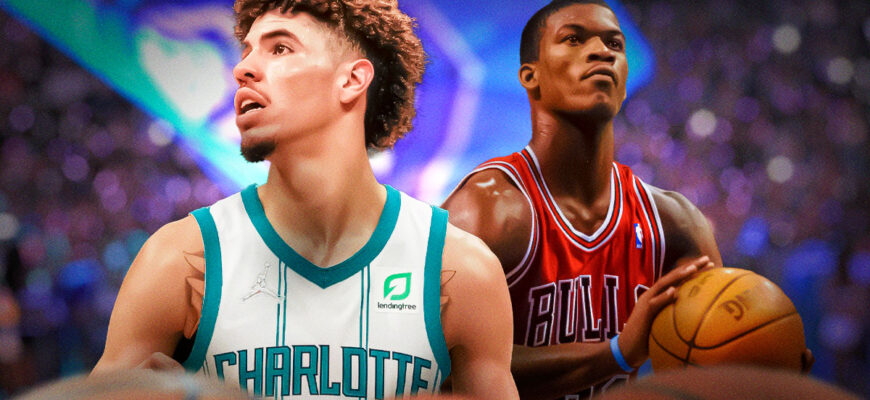The NBA offseason of 2025 was once whispered about with a sense of awe, heralded as a potential seismic shift in league power. Names like Jayson Tatum, Donovan Mitchell, and Damian Lillard were on every fan`s lips, conjuring images of dramatic free agency spectacles, unexpected team changes, and a frenetic summer of wheeling and dealing. Yet, as the calendar turns, a different narrative has emerged: one of surprising stability, record-shattering contracts, and a fundamental reshaping of how the league`s top talent secures their future. The anticipated chaos has been replaced by calculated commitment.
The Vanishing Act of the Star Free Agent
For years, the summer free agency period was a prime time for media narratives and fan speculation. Who would leave? Who would form a new super team? Who would test the open market for maximum leverage? But the game has changed. The “historic” 2025 class, once brimming with potential free agents, has largely vanished from that category. Instead, an unprecedented wave of contract extensions has swept through the league, locking down talent years in advance. Over the past few offseasons, more than 65 veterans have opted for the certainty of an early extension, with 26 players making that choice last year alone.
This isn`t merely a coincidence; it`s a direct consequence of strategic adjustments within the NBA`s Collective Bargaining Agreement (CBA) in 2017 and 2023. These changes have sweetened the pot for staying put, making the allure of guaranteed, eye-watering sums significantly more attractive than the perceived gamble of free agency. Why wait when the biggest payday can be secured now?
The Golden Handcuffs: Supermax and Beyond
At the forefront of this trend are the league`s undisputed titans. Shai Gilgeous-Alexander, the reigning MVP, is poised to sign a four-year, $293.4 million extension. The sheer audacity of a $73.3 million average annual salary is a testament to the league`s booming finances and the individual`s exceptional talent. Nikola Jokic, another recent MVP, isn`t far behind, eligible for an additional three years and $212 million on top of his already massive deal. These are not merely contracts; they are dynastic commitments, securing generational wealth and tying elite players to their franchises for the better part of a decade.
The “supermax” criteria, which reward players for consistent All-NBA selections, have created a new tier of financial security. It`s a system designed to incentivize loyalty, and it works. When a player can secure an additional $86 million by waiting just one more year, as SGA could, the decision becomes less about changing scenery and more about optimizing an already unfathomable financial future.
Strategic Maneuvering: Beyond the Superstars
The extension trend isn`t exclusive to MVPs. It`s trickling down the player hierarchy, albeit with different considerations:
- Trae Young: His eligibility for a four-year, $229 million extension highlights the dilemma for teams balancing individual talent with roster construction and on-court fit. The Hawks face a choice: commit to a dynamic but sometimes inconsistent star, or explore other options for their young core.
- Nikola Jokic: Even with a supermax already signed, his potential to add another three years and $212 million prompts a fascinating power play. His candid assessment of the Nuggets` depth could be seen as a subtle lever to pressure management, suggesting that while he`s committed, he expects the team to reciprocate with improved roster support.
- Austin Reaves: A fan favorite on a bargain contract, Reaves` situation exemplifies the CBA`s limitations for mid-tier players. The Lakers can only offer him a maximum of four years, $89.2 million – a substantial sum but far less than his potential market value if he were to hit free agency. This incentivizes players like Reaves to bypass early extensions, holding out for true unrestricted free agency to maximize their earning potential.
- Zion Williamson: The uncertainty surrounding Williamson`s injury history means an extension for him is “unlikely.” His current contract includes non-guaranteed years, giving New Orleans leverage. Committing to a long-term, fully guaranteed deal would remove that crucial safety net for the team, underscoring that even with immense talent, durability is paramount.
The New Offseason Drama: Behind Closed Doors
This shift means the true drama of the NBA offseason is increasingly unfolding away from the public eye. It`s in the quiet negotiations, the intricate calculations of cap space and luxury tax aprons, and the careful balancing act between player aspirations and team flexibility. The spectacle of free agency, with its dramatic televised decisions and constant news alerts, may become a rarer phenomenon for the league`s absolute elite.
Instead, we are entering an era where long-term financial security for star players is prioritized, turning what could have been a summer of high-stakes musical chairs into a masterclass in strategic contract management. It’s less about who moves, and more about who stays, and for how much. And in the NBA, where every dollar and every contract year dictates future possibilities, that`s a story as compelling as any on-court heroics.







